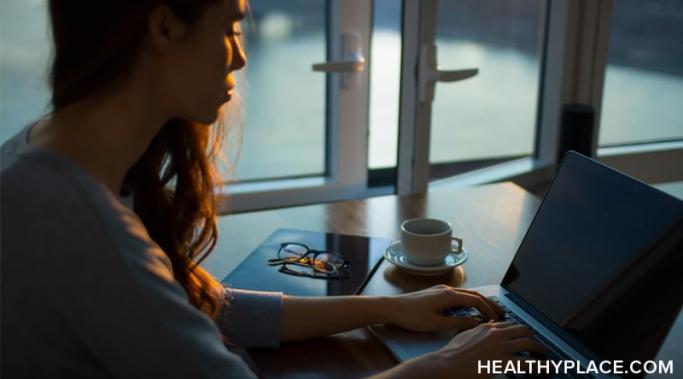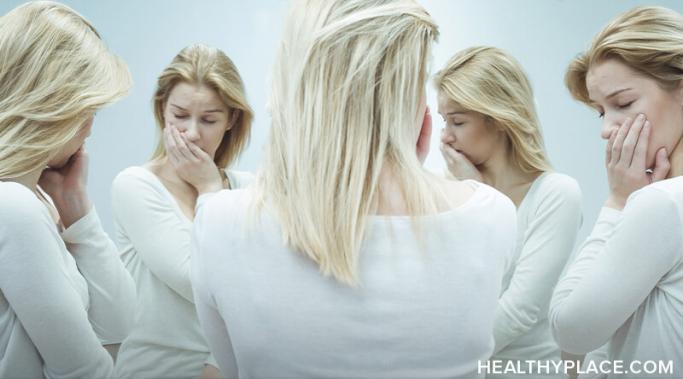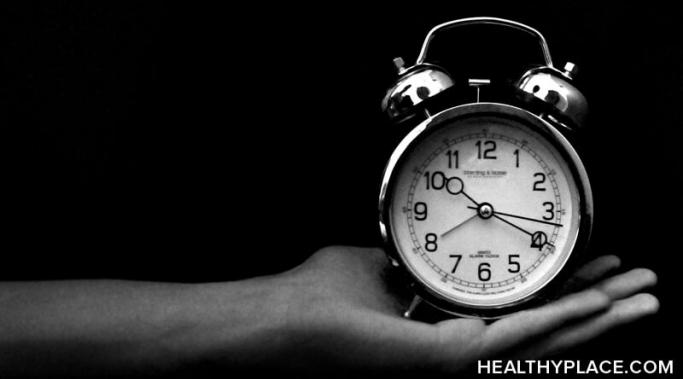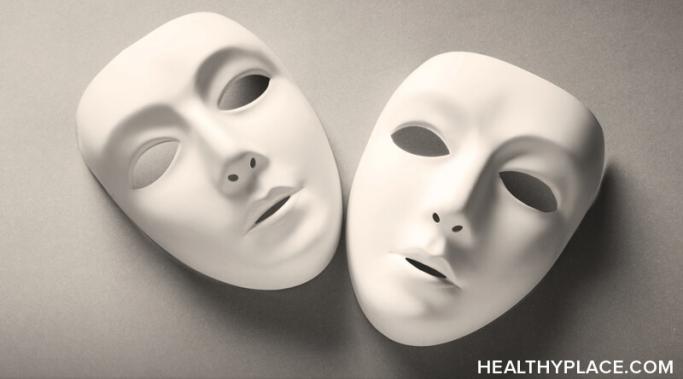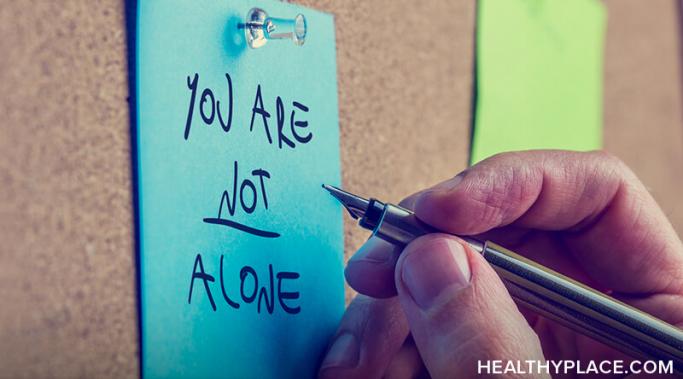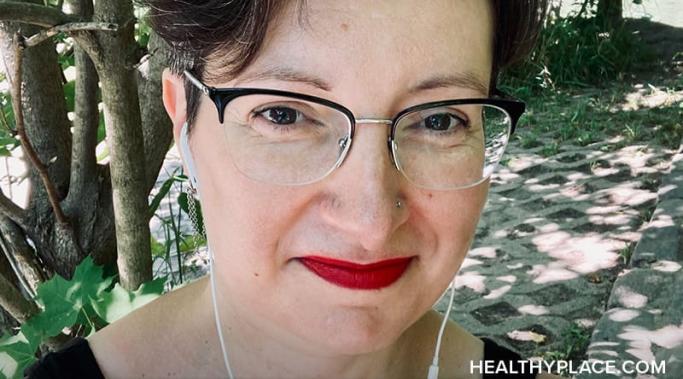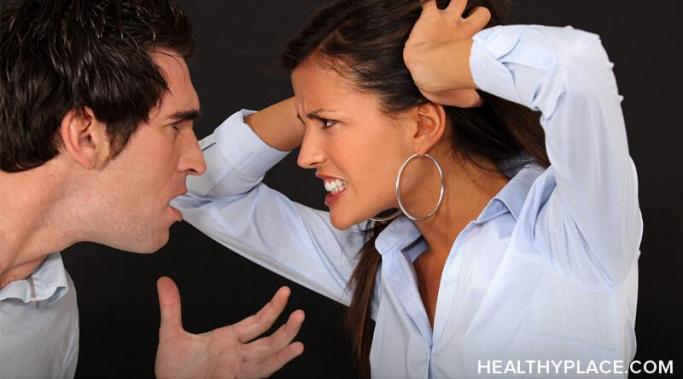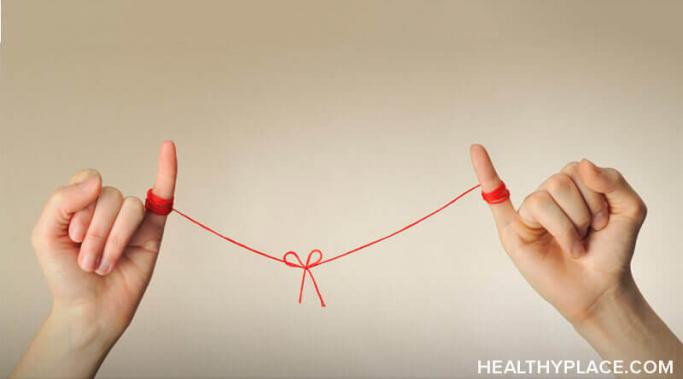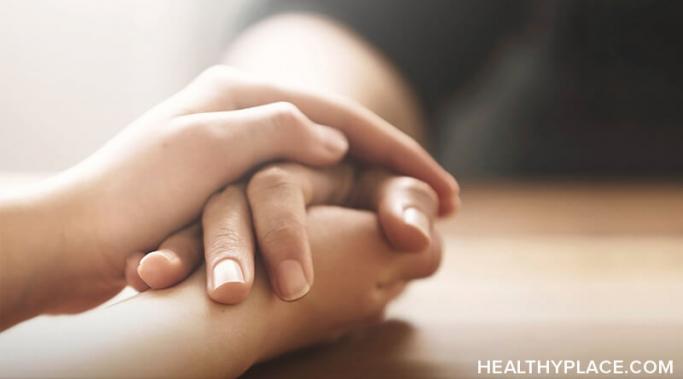I've been on and off dating apps for many years. I joined a few of them again recently, and I've been struggling to decide how much to share about myself and my mental health, both on my profiles and in the messages I send.
Relationships and Mental Illness
As someone who lives with borderline personality disorder (BPD) and complex posttraumatic stress disorder (PTSD), I'm engaged in a daily struggle to maintain my sanity. What impacts my sanity the most is the belief that I've said or done something to interfere with other people's sanity. I've learned that the best way to interfere with other people's sanity is to become involved with them in intimate relationships. That way, I can offer them front-row seats to witness my cyclical descent into instability and be swept up into it themselves whenever they try to bring order to my intermittently untameable internal chaos. I don't know how to stay sane, in love, or out of it. When it comes to relationships, all I seem to do is bring my partners into the eye of the storm of a woman who's lost her center and herself.
I was diagnosed with borderline personality disorder (BPD) in my 20s after a pill overdose and a pseudopsychotic episode. After receiving outpatient care for a year, I was told that I no longer met the criteria for BPD. In the years since, I've been living my life with the understanding that I have depression, anxiety, and complex posttraumatic stress disorder (PTSD). This changed in 2022. (Note: This post contains a trigger warning.)
Like many people who live with borderline personality disorder (BPD), the relationships in my life have been turbulent: I've been estranged from my family on several occasions, and my friendships rarely last longer than a few years. However, the most dysfunctional relationships I've had have been with my two long-term romantic partners. I don't like how I behaved in either of those relationships, yet I felt helpless to find a way to behave differently. I watched myself become passive-aggressive, demanding, argumentative and possessive. I witnessed the hurt I caused and wrestled with intense shame, despair, and self-loathing. The turmoil I struggled with in my relationship with my first boyfriend was so intense that, after our breakup, I ended up overdosing as a cry for help. (Note: This post contains a trigger warning.)
People who have borderline personality disorder (BPD) have a reputation for being difficult to treat in therapy and not trusting therapists. As someone who has BPD, I can attest to this: I can be very defensive, and I have a habit of trying to do the therapist's job by diagnosing myself and telling them what I think I need. I also don't stick with any therapist for long and have been known to bail with almost no warning.
My name is Mel Bender. I’m thrilled to be joining HealthyPlace as an author for the Relationships and Mental Illness blog. I’m a freelance writer, blogger, and artist living in Toronto, Canada.
Juliana Sabatello
This will be my last post for the "Relationships and Mental Illness" blog here at HealthyPlace. I found HealthyPlace after deciding to leave my job as a mental health counselor and search for a new career path. I have always liked to write, and with my own experience with anxiety, I thought writing for HealthyPlace would be perfect for me. I have had the opportunity to explore how my anxiety has affected my relationships, as well as share some coping strategies and advice that have helped me. It was great for me when I started, but so much has changed in my life in the past year that it's time for me to move on.
Juliana Sabatello
Conflict is a normal part of relationships, but so many don't realize the difference between healthy and unhealthy conflict resolution. The "four horsemen" is a concept developed by Dr. John Gottman to describe four unhealthy ways that couples argue, which lead to a relationship's demise: criticism, contempt, defensiveness, and stonewalling.
Juliana Sabatello
Codependency was a term I remember hearing as a teen but didn’t understand. What is the difference between offering and relying on support from a loved one in times of need and being codependent with that person? I’ve seen people in my life slip into this unhealthy relationship pattern, and I understand now just how mental illness and trauma create the perfect environment for codependency to grow.
Juliana Sabatello
When we aren't at our best emotionally, it can help on a nervous system level to just have someone be with us to co-regulate our emotions. I was definitely one of those children who needed a hug when I was upset. I have always responded strongly to the negative and positive emotions of others. I also respond very well to a calm person comforting me when I am anxious or stressed. I work mostly with children, so I am used to hearing the term "co-regulation" as it relates to parents and caregivers helping children calm down when they are upset, but it can be just as powerful for adults in relationships.
